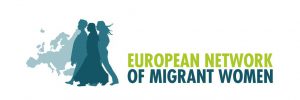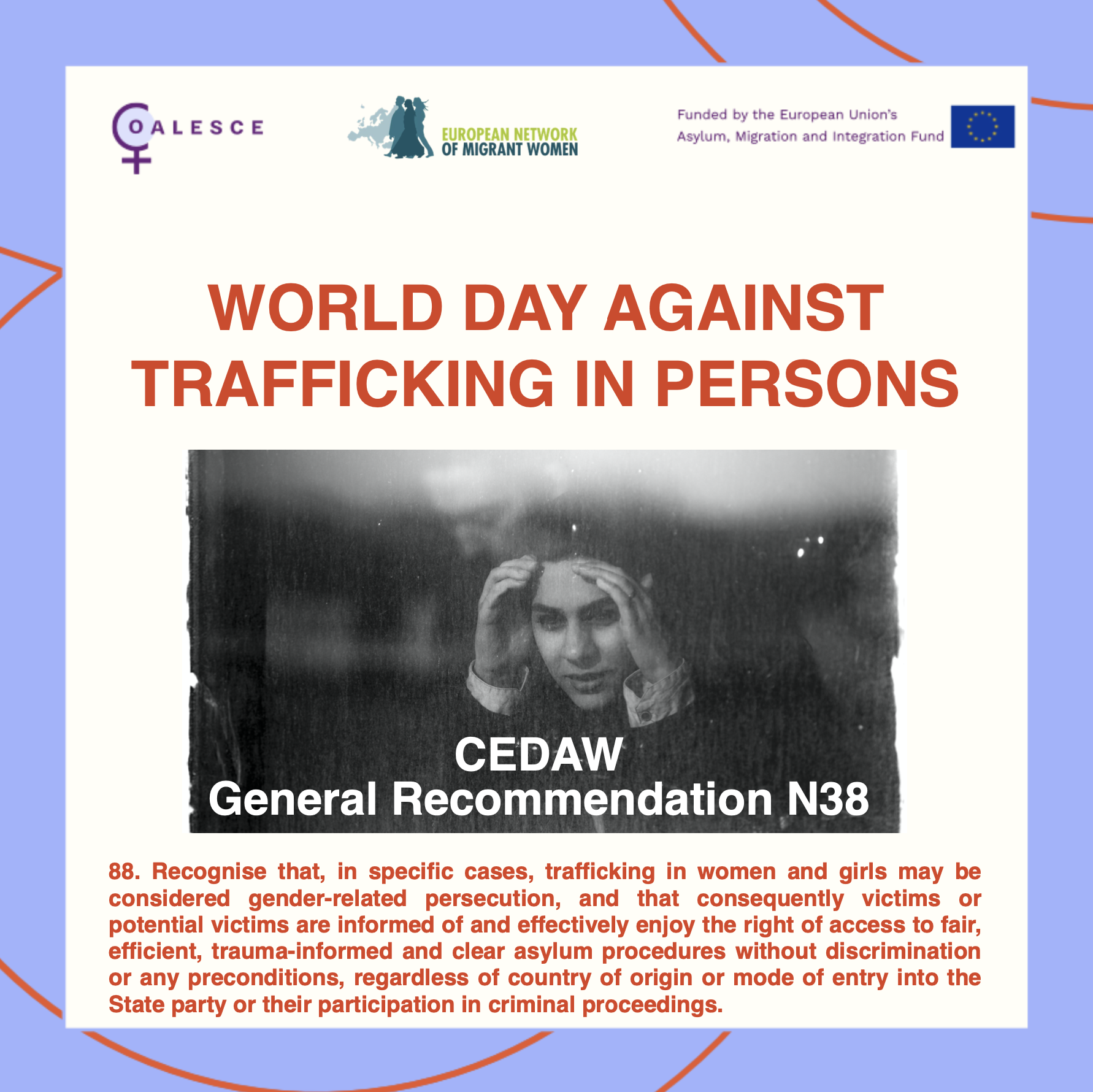European Network of Migrant Women

30 JULY: WORLD DAY AGAINST TRAFFICKING IN PERSONS
Article 6 of the Convention on the Elimination of All Forms of Discrimination against Women (CEDAW) sets out States parties’ legal obligation to “take all appropriate measures, including legislation, to suppress all forms of traffic in women and exploitation of prostitution of women”.
Despite the many existing anti-trafficking legal and policy frameworks at the national, regional and international levels, females continue to comprise the majority of detected victims of trafficking across the world and perpetrators enjoy widespread impunity.
In November 2020, the CEDAW Committee published General Recommendation 38 on trafficking in women and girls in the context of global migration. This General Recommendation affirms as a key priority of States, both individually and collectively, to prevent women and girls from exposure to risk of being trafficked.
As a migrant women-led Network, the whole text of the GR 38 is crucial for us but, today, we would like to highlight the following four recommendations.



